7 Tips on How to Take Care of Your Feet Everyday
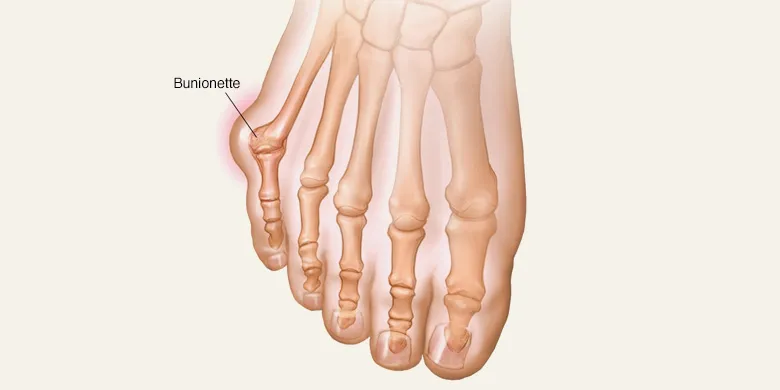
Fig. 1: What is Bunionette?
Your feet go through a lot. They get us where we need to go each and every day. They take on a lot of different surfaces and weather conditions. Over time, our feet can develop blisters, calluses, ingrown toenails, bunions and other ailments when we've been walking for a while. Such conditions can make it painful to walk or move around effectively. It's important to take care of our feet so that we continue to perform all of our daily tasks.
There are many ways to take good care of our feet. We can get a good foot massage on a regular basis. We can also visit a podiatrist to help us with foot issues. You can read more online at Perth Foot Centre services and other sources for more information about the different problem areas with our feet that podiatrists can help with.
Here are seven tips to help take care of your feet every day:
1. Look at your feet regularly to identify any problems
It's a good idea to examine your feet at least once every week or two after a bath or shower. If any of the nails are discolored, that could indicate foot fungus has formed. If you have peeling or scaling skin between the toes or on the soles of your feet, that can be a sign of athlete's foot. You can also examine your feet for any blisters or calluses that you may have already felt so that you can treat them accordingly. Diabetics should take good care of their feet more often, as they can generally have a greater risk of infection or other foot problems.
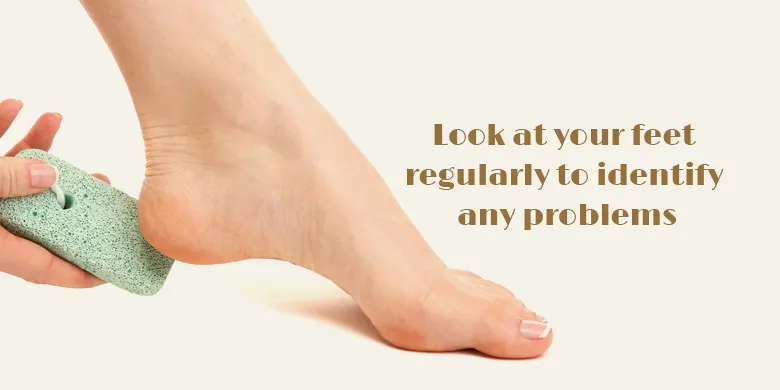
Fig. 2: Look at your feet to identify any problem
2. Keep your feet clean
Make sure that you scrub your feet with soap and water regularly. Dry them carefully, as fungal infections thrive on moisture. This means taking extra care to carefully dry the soles of your feet, the tops and bottoms of your toes, your toenails and the skin in between your toes.
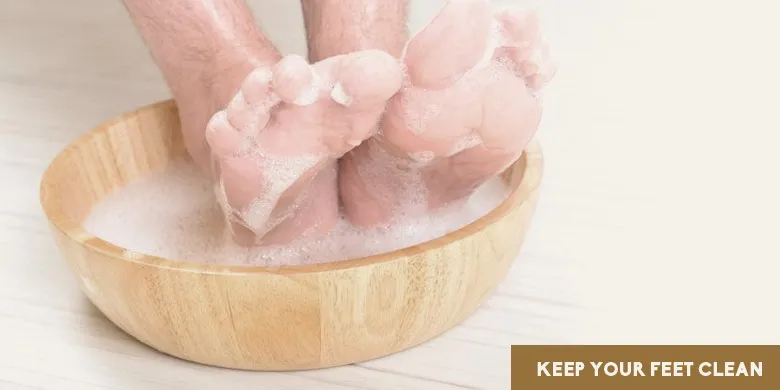
Fig. 3: Keep your feet clean
3. Wear comfortable shoes
Wearing shoes that are too tight for your feet can cause your feet to swell or lead to other foot issues over time. You should wear shoes that are comfortable for any environment and terrain. They should have a wide heel and plenty of room for your toes to move. Shoes that are tight or have pointed ends can cause your feet to cramp, and can also cause calluses, blisters or ingrown toenails to form. Shoes made of mesh fabrics can help prevent your feet from swelling and allow you to move around more comfortably.
4. Cut your toenails regularly
You should make sure to cut your toenails a few times a month, depending on need. Make sure they are cut properly, and avoid cutting too close to your skin or rounding off the nails. This can cause infection in the nail or ingrown toenails, which can be painful.
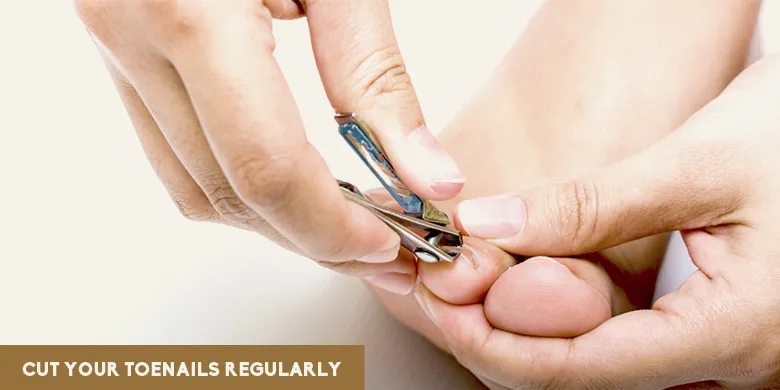
Fig. 4: Cut your toenails regularly
5. Keep your feet dry
If you are exercising or spending a lot of time outdoors in hot weather, your feet will tend to sweat. This added perspiration makes your feet ripe for bacteria and fungal infections. To combat this, wear socks that keep your feet dry. Many socks that are made of cotton fibers can do a good job of staving off excess moisture. If you wear pantyhose, make sure it's not too tight, as this can also keep unwanted moisture on your feet
6. Don't share footwear with others
When you're in public places like the gym, the pool or at the beach, you might not always remember to wear shoes. However, this doesn't mean that you should borrow someone else's shoes. Fungus infections can spread from socks and shoes, so make sure you wear only your footwear wherever you go, and take the time to clean them regularly.
7. Protect your feet with moisturizer
Because our skin can get thinner and feel drier as we get older, it's a good idea to keep our skin healthy. This includes our feet. Taking a few minutes to apply moisturizer to your feet after a refreshing bath or shower can help keep them in good shape. Just be sure not to apply too much moisturizer to the skin on the insides of your toes, as this can sometimes can lead to fungal infections if too much moisture builds up.
These are just a few of the many ways that you can help keep your feet healthy. Talk to your doctor or podiatrist if you are experiencing any kind of foot pain, blisters, calluses or fungal infections. They may prescribe medication or lotions that can help, or they may be able to resolve the problem with a minor in-office procedure. Taking care of your feet only takes a little extra time out of your week, but it can go a long way towards improving your overall long-term health.
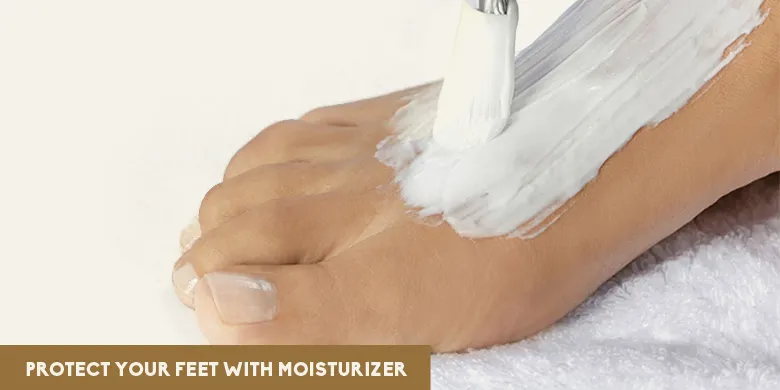
Fig. 5: Protect your feet with moisturizer


